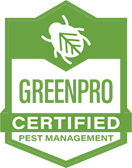
The Ultimate Spider Prevention Guide For Roseville Homes
Are you ready to learn about spiders? If you have questions about why spiders do the things they do, you're going to love this short article. We'll dig into some little-known facts about common house spiders and give you the information you need to prevent a spider problem or address a current issue. It pays to know how spiders behave.
Before we start, we want to remind you that help is available if you need it. Your Neighborly Pest Management team can remove spiders from your home and also help you keep spiders and other pests from entering. Jump to our contact page, or give us a call to connect. We are your source for industry-leading pest solutions and pest control services in Roseville. That said, let's dive right in and look at some helpful facts about common spiders in our area.
Spiders Are Not Insects But Arachnids
.2404181010550.jpg)
If you want to keep these arachnids out of your home, you must understand how they differ from insects. The big reason insects invade your house is that they come inside looking for food. Some insects bite and draw blood. Some feed on the foods you eat—even food that has started to rot. Some nibble on carpets, clothing, rugs, drapes, books, and more. Spiders don't eat any of these things. What do spiders eat? They eat those insects. Spiders won't want to live with you if you address the insects in your home. That makes sense, right?
Another reason insects get into your house is because it is chilly outside. Spiders don't do this. They're not bothered by cold temperatures. But they may follow their insect prey indoors. When temperatures drop and insects enter your home to get to the warmth, spiders begin to realize that there isn't as much food outside. That's why spiders often come inside during the winter months. It is important to take steps to keep insects out of your house all year long if you want a spider-free home.
Effective spider management begins with insect control. You need to deal with insects currently inside your house and apply measures to keep insects from entering your home in the future. No self-respecting spider will want to live with you if you're successful. Let's quickly look at why it is good to keep spiders out of your home.


Ensuring your home and business are pest-free, explore our different service areas to see if we're local to you! Give us a call to get started!
Professional Pest Control Is A Great Way To Keep The Spiders Away
If you want to get rid of spiders in your house, the first thing that has to go is insects. Right? A pest control technician uses field-tested methods and products to rid your home of insect infestations. Once the insects are out of your house, we help you keep them out by routinely applying a liquid application to your exterior and spot treatments around your home.
On top of reducing and controlling insects, we directly address spiders by removing webs, destroying egg sacs, and applying targeted control. Sometimes, direct spider removal is needed, and it pays to have a trained and experienced technician handle this job. We monitor the results and perform professional inspections to resolve the problem fully.
Are you in Roseville? Would you like to say goodbye to insect pests and common household spiders? We'd like to help you with that. Contact Neighborly Pest Management today to learn about residential pest control in Roseville. We offer traditional pest treatments as well as an advanced organic home pest control solution. Your service is customized to meet your specific needs. Connect with us today to get started and to learn more about our residential and commercial pest control services in Roseville.
-
Same-Day & Emergency Services AvailableWhen possible, we can provide prompt assistance to help with your pest solution needs.
-
Local, Family Owned & OperatedRooted in our local communities, we know the best solutions for the pests in our unique areas.
-
We Offer Organic Treatment OptionsEmbrace a eco-friendly approach with our range of sustainable solutions for your needs.
-
45+ Years of Industry ExperienceTrust in our seasoned knowledge and proven track record spanning over four decades.
Five No-Sweat Spider Prevention Tips For Around The House
Spider prevention is mostly about altering conditions that invite a spider problem. These prevention tips are no-sweat to understand but may take some time to implement. But, if you're diligent, you can have great success keeping spiders out without using a single control material. That is a win in our book.
1. Control Light Sources
Have you noticed that spiders create webs near light fixtures? Do you know why? It is because insects are attracted to light, and the spiders are looking to catch those insects.
- Consider keeping your exterior lights off at night.
- Only turn entryway lights on when you need them so insects don't accidentally fly into your home when you open your exterior doors.
- Consider keeping shades drawn and blinds closed.
- Replace white lights with bulbs that cast yellow light. Insects can detect yellow light and are not attracted to it.
- Replace bulbs with motion-sensitive bulbs.
Removing all the light that can attract insects to your home is impossible, but reducing light will have an impact and help reduce insect populations. When you reduce insects, you'll reduce spiders by default.
2. Manage Trash Containers
Have you found webs on the sides or handles of your trash container? Do you know why spiders do that? Insects smell your trash and try to get inside your containers. When they do, the spiders try to catch them.
- Consider bagging your trash in scented trash bags to mask the scent of decay that attracts insects from a distance.
- Make sure you have covers for your trash containers and that they remain closed.
- Avoid overfilling your containers because this will prop the lid open.
- Get your trash to the curb weekly to avoid having a stinky container.
- Wash your container if it starts to smell bad.
- Position your trash containers far from your exterior doors so insects do zip into your home when the door opens.
Trash management takes a bit of effort, but it yields great results.
3. Manage Landscaping
Have you noticed that spiders make webs in your landscaping? They do that to catch the insects. Is there anything you can do about that?
- You can reduce landscape insects and moisture pests by cleaning your gutters and only giving your plants that water needed for healthy growth.
- If you notice aphids, whiteflies, or scale insects on your plants, deal with them as soon as possible.
- Always remove webs when you find them. A web can have an egg sac in it, which can have hundreds of spider webs inside.
- Remove clutter in your landscaping and next to your exterior walls. Spiders hide in clutter.
- Remove grass and weeds from the vegetation in your landscaping.
A trim and neat yard and landscaping are resident to spider activity.
4. Clean Your Garage
Have you noticed that spiders love to make webs in your garage? It is a common zone for spiders to establish themselves. They do this to catch insects that get into your garage. But they also do it because they are prone to create webs on dusty or dirty surfaces and where there are other webs.
- Use a web removal tool to remove the webs and crush the egg sacs you find.
- Wipe down or wash surfaces.
- Remove clutter and junk piles.
- Refrain from storing trash or recycling in your garage.
Common house spiders don't favor a clean environment. Sanitation is key.
5. Block Access
Have you ever wondered how on earth spiders get into your home? They use tiny gaps and cracks that almost every home has.
- Replace weather-proofing materials around your exterior doors.
- Replace or patch the screens on your doors and windows.
- Replacing rotting or damaged wood.
- Fill in holes and gaps with expanding foam.
- Seal around pipes and wires.
These spider prevention tips offer layered protection to reduce spiders and prevent entry. At the heart of spider control is the control of insects, which is why hiring a professional is a great way to deal with spiders.

Hear From Our Happy Customers
At Neighborly Pest Management, your satisfaction is our priority! See for yourself what our customers have to say about working with us.
-
“We’ve used Neighborly for a couple of years and have had outstanding service consistently throughout. Doug is mindful of our pets and kid's safety as well, making sure that our home is a safe environment for everyone except the pests!”- Greg
-
“We have been using Neighborly Pest for many years. While we have had many competitors come to our door, we have no interest in changing. Doug has been our technician during our entire service, and he is absolutely the best, always friendly!”- Brittany A.
-
“Adam was fantastic! Super friendly and professional. I felt at ease and knew I could ask any question, no matter how dumb it sounded, and he was able to answer and provide more information based on my concerns.”- Erin D.
-
“I've never had a bug problem since I switched to Neighborly. Danny is an awesome technician! He has a great personality and explains things thoroughly and gives me clear and detailed answers to any questions I might have.”- Joe B.
-
“Nate is an excellent technician. He is a big reason we’re so happy with the service! Overall a great company and fair pricing.”- M.D.
-
“I have been working with Doug from Neighborly for over two years now, and it has been a pleasure. He is always friendly and knowledgeable and has taken care of every pest situation we have encountered.”- Holly K.





